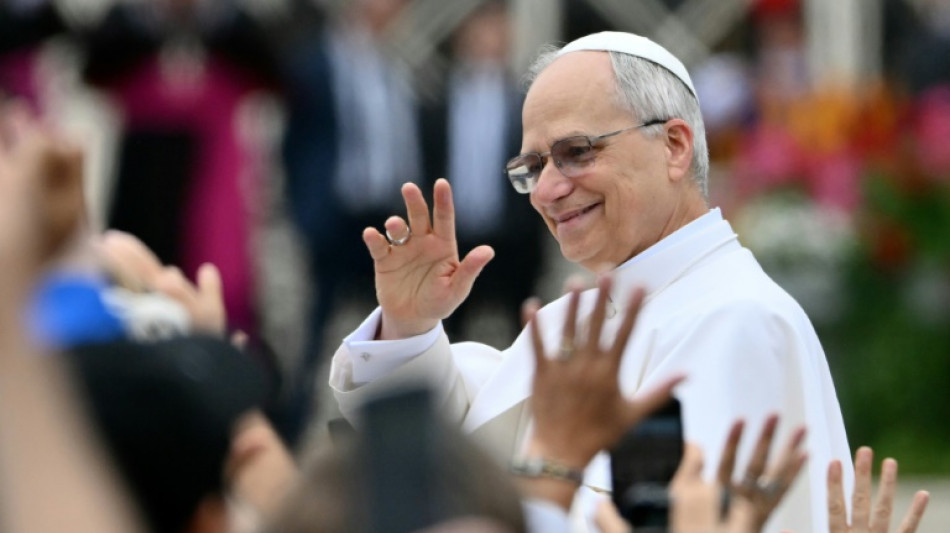
-
 England captain Itoje savours 'special' New Zealand win
England captain Itoje savours 'special' New Zealand win
-
Wales's Evans denies Japan historic win with last-gasp penalty

-
 Zelensky renews calls for more air defence after deadly strike on Kyiv
Zelensky renews calls for more air defence after deadly strike on Kyiv
-
NBA's struggling Pelicans sack coach Willie Green

-
 Petain tribute comments raise 'revisionist' storm in France
Petain tribute comments raise 'revisionist' storm in France
-
Spain on World Cup brink as Belgium also made to wait

-
 Spain virtually seal World Cup qualification in Georgia romp
Spain virtually seal World Cup qualification in Georgia romp
-
M23, DR Congo sign new peace roadmap in Doha

-
 Estevao, Casemiro on target for Brazil in Senegal win
Estevao, Casemiro on target for Brazil in Senegal win
-
Ford steers England to rare win over New Zealand

-
 Massive march in Brazil marks first big UN climate protest in years
Massive march in Brazil marks first big UN climate protest in years
-
Spain rescues hundreds of exotic animals from unlicensed shelter

-
 Huge fire sparked by explosions near Argentine capital 'contained'
Huge fire sparked by explosions near Argentine capital 'contained'
-
South Africa defy early red card to beat battling Italy

-
 Sinner beats De Minaur to reach ATP Finals title match
Sinner beats De Minaur to reach ATP Finals title match
-
Zelensky vows overhaul of Ukraine's scandal-hit energy firms

-
 South Africa defy early red card to beat Italy
South Africa defy early red card to beat Italy
-
Alex Marquez claims Valencia MotoGP sprint victory

-
 McIlroy shares lead with Race to Dubai title in sight
McIlroy shares lead with Race to Dubai title in sight
-
Climate protesters rally in Brazil at COP30 halfway mark

-
 Spike Lee gifts pope Knicks jersey as pontiff meets film stars
Spike Lee gifts pope Knicks jersey as pontiff meets film stars
-
BBC caught in crossfire of polarised political and media landscape

-
 'Happy' Shiffrin dominates in Levi slalom for 102nd World Cup win
'Happy' Shiffrin dominates in Levi slalom for 102nd World Cup win
-
Palestinian national team on 'mission' for peace in Spain visit

-
 Brazilian 'Superman' cheers child cancer patients in Ghana
Brazilian 'Superman' cheers child cancer patients in Ghana
-
India close in on win over South Africa after Jadeja heroics

-
 Huge explosions rock industrial area near Argentina's capital
Huge explosions rock industrial area near Argentina's capital
-
Bezzecchi takes pole for Valencia sprint and MotoGP

-
 Dominant Shiffrin leads after first slalom run in Levi
Dominant Shiffrin leads after first slalom run in Levi
-
Nine killed in accidental explosion at Indian Kashmir police station

-
 Climate protesters to rally at COP30's halfway mark
Climate protesters to rally at COP30's halfway mark
-
Fighting South Africa lose Rickelton after India 189 all out

-
 Harmer leads South Africa fightback as India 189 all out
Harmer leads South Africa fightback as India 189 all out
-
Prison looms for Brazil's Bolsonaro after court rejects his appeal
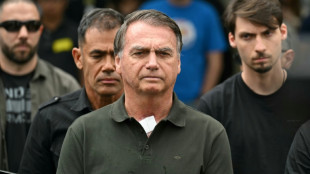
-
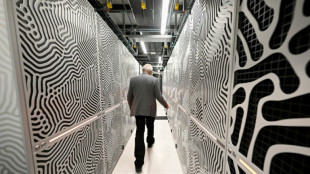 EU bows to pressure on loosening AI, privacy rules
EU bows to pressure on loosening AI, privacy rules
-
India close in on lead despite South African strikes

-
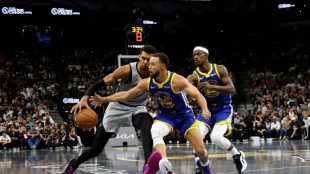 Curry's 49 points propel Warriors in 109-108 win over Spurs
Curry's 49 points propel Warriors in 109-108 win over Spurs
-
NZ boxer Parker denies taking banned substance after failed test

-
 Australia setback as Hazlewood ruled out of 1st Ashes Test
Australia setback as Hazlewood ruled out of 1st Ashes Test
-
Australia pace spearhead Josh Hazlewood ruled out of 1st Ashes Test

-
 UN Security Council to vote Monday on Trump Gaza plan
UN Security Council to vote Monday on Trump Gaza plan
-
Japan's Tomono leads after men's short program at Skate America
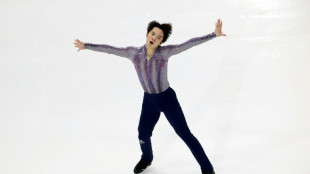
-
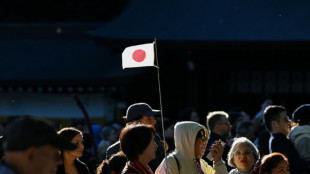 China tells citizens to avoid Japan travel as Taiwan row grows
China tells citizens to avoid Japan travel as Taiwan row grows
-
Purdue Pharma to be dissolved as US judge says to approve bankruptcy

-
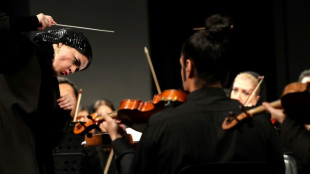 Iran's first woman orchestra conductor inspires
Iran's first woman orchestra conductor inspires
-
Wood gets all-clear in boost for England

-
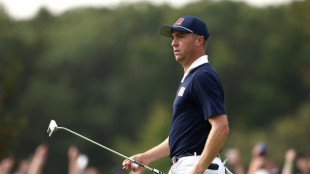 Golf's world No. 8 Thomas has back surgery
Golf's world No. 8 Thomas has back surgery
-
Rebooted Harlem museum celebrates rise of Black art

-
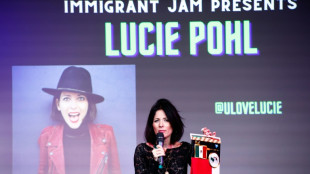 'Desperation in the air': immigrant comics skewer Trump crackdown
'Desperation in the air': immigrant comics skewer Trump crackdown
-
UN regulator says shipping still wants to decarbonize -- despite US threats
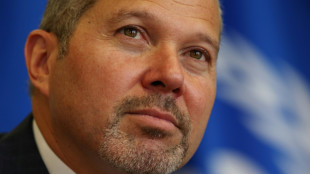

Pope's call to tame AI sets tone for Christian leaders
Pope Leo XIV singled out the challenges of artificial intelligence as he took office this month, underscoring religious leaders' hopes to influence a technology freighted with both vast hopes and apocalyptic fears.
The pope was cited by Protestant American Evangelical leaders who launched an open letter to President Donald Trump published Wednesday, calling for an "AI revolution accelerating responsibly" while warning of "potential peril".
Leo XIV told cardinals on May 10 that he had taken his papal name in honour of Leo XIII (1878-1903). He had "addressed the social question in the context of the first great industrial revolution", said the pope.
Today, "the Church offers to everyone the treasury of her social teaching in response to another industrial revolution and to developments in the field of artificial intelligence," he added.
Wednesday's letter from the Evangelicals called for the development of "powerful AI tools that help cure diseases and solve practical problems".
But it also warned of "autonomous smarter-than-human machines that nobody knows how to control" -- echoing the language of Silicon Valley's so-called "AI doomers".
- 'Epochal change' -
Leo's highlighting of AI follows years of interventions at different levels of the Catholic Church, said Paolo Benanti, 51, a priest with a PhD in engineering.
Benanti has advised both the Vatican and the Italian government on technology.
The late pope, Francis, wove his thinking about technology and AI into wider reflections on climate change and society.
In a January speech, he cited "concerns about intellectual property rights, the job security of millions of people, the need to respect privacy and protect the environment" as well as misinformation.
Such 21st-Century challenges animated Francis's 2015 remark that "we are not living an epoch of change so much as an epochal change", Benanti told AFP.
And he was at pains to say that the Vatican was not looking to hold back progress.
"Look at the huge improvement that AI can produce" in cases like assisting medical diagnosis in regions without enough doctors, he said.
"AI could be a wonderful tool but could be weaponised... this is something that could happen with every kind of technology, from the hammer... up to nuclear power," Benanti added.
- Ethical algorithms -
Francis called for crafting a new "algor-ethics" (a portmanteau of "algorithm" and "ethics") to govern emerging artificial intelligence.
One key moral concept in Church documents about technology is upholding "human dignity".
This means avoiding "some kind of system that simply cannot recognise the uniqueness of the human being and respect it," Benanti said.
He gave the hypothetical example of an automated process for deciding on asylum applications "based on correlation with other data and not with your own and unique story".
Such technology would recall the Holocaust, "the darkest page of the last century" when "one piece of data" on whether a person was Jewish or not could condemn them, Benanti said.
In the world of work, the friar hopes to see "human-compatible AI innovation", with people "putting something unique inside the process".
Humans should "remain in a position to produce value" rather than being relegated to filling in the gaps around machine capabilities, he urged.
- 'Reduce the risks' -
Francis said in January last year that "highly sophisticated machines that act as a support for thinking... can be abused by the primordial temptation to become like God without God".
"It's very perilous when individuals assume for themselves godlike powers, to make decisions for the rest of us," agreed Reverend Johnnie Moore, President of the US-based Congress of Christian Leaders and a lead signatory of Wednesday's open letter.
Rather than allowing tech bosses and scientists to set the terms of the future, leaders should "go to the well" of religious thought's "compounding wisdom over the centuries" to help chart the course, he told AFP by phone from Washington.
Where Pope Leo highlighted "new challenges for the defence of human dignity, justice and labour" from artificial intelligence, the Evangelical leaders went further.
They quoted OpenAI chief Sam Altman's 2015 remark that "AI will most likely lead to the end of the world -- but in the meantime, there'll be great companies".
"The current risk equation is just way too high to be tolerable," Moore said. "We have to reduce the risk to human beings in this process."
T.Khatib--SF-PST



